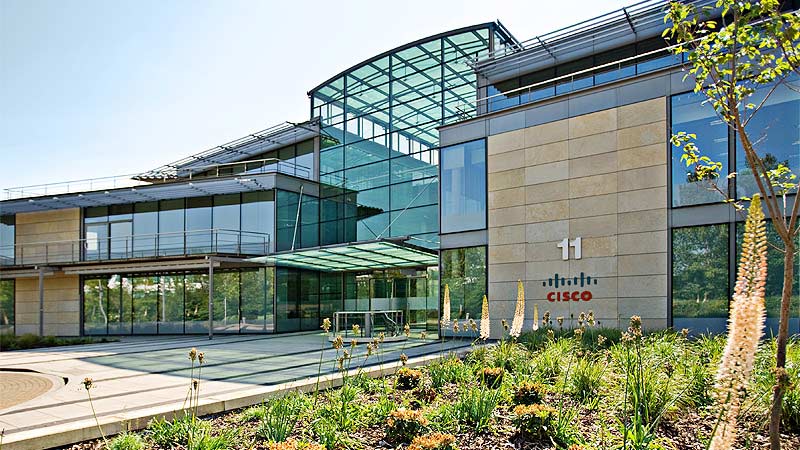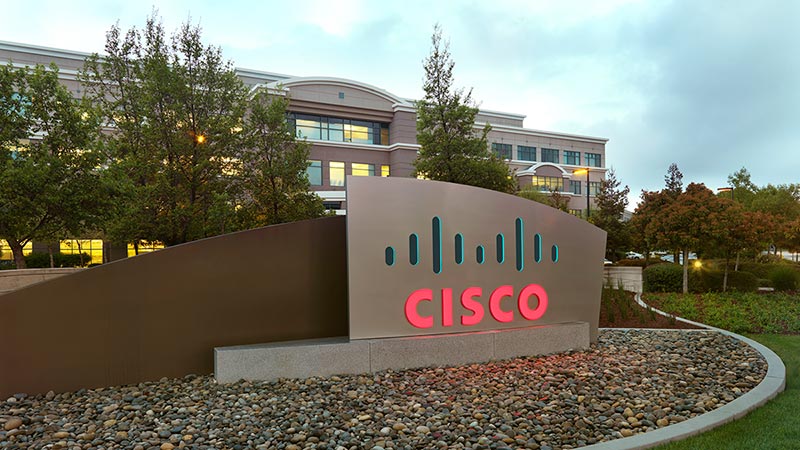SAN JOSE, Calif., September 24, 2001 - Recognizing that customized XML-based applications are a major driving force behind the wide spread adoption of IP telephony, Cisco Systems, Inc. today announced it has launched an online IP telephony services community that connects Cisco customers directly with independent XML developers to create a wide array of productivity-enhancing business applications.
The web site, located at www.hotdispatch.com/cisco-ip-telephony, is an online community that encourages end-user customers to work directly with application developers to create custom or packaged applications for Cisco's IP telephony solutions. The XML applications allow customers to highly customize new information services for individual business needs. With an open development approach, Cisco is able to rapidly add new information services that can be used in conjunction with real-time audio communications to help customers quickly realize the productivity benefits of their Cisco IP telephony system. The site is operated by HotDispatch - a leading provider of infrastructure to power online technical communities. The Cisco site provides XML developers with the ability to collaborate with their peers to produce applications for general business or vertical markets such as healthcare, education, hospitality and retail.
"It's the applications, not the technology, that will drive the wide spread adoption of IP telephony," said Brian Strachman, senior analyst, Voice and Data Communications, Cahners In-Stat Group. "I believe this is the time for new, compelling telephony applications to emerge and the IP telephony market to really take off as a result. What Cisco is doing to generate market momentum with its XML community development program is a very positive step that will help generate growth for the industry."
Cisco IP Telephony Phone Services Bake-Off
Cisco will be hosting its second "IP Telephony Phone Services Bake-Off" at the InfoMart in downtown Dallas, Texas Nov. 14-16 to create additional momentum around the development of innovative XML applications for its customers. As many as 80 exhibitors are expected to attend this event and show off a wide variety of applications that can be deployed across the Cisco Architecture for Voice, Video and Integrated Data (Cisco AVVID) networks and on Cisco's 7960 and 7940 IP phones. The applications fall into categories that include: messaging, call handling, directory, security, collaboration, stock quotes, travel advisory, authorization codes, billing account codes, timecards, advertising, form ordering and auto faxing applications.
Reducing Administrative Costs
The drivers for IP telephony adoption are centered around three major value propositions - increased business productivity, reduced administrative costs and enhanced customer care. In a hospital or clinic environment, for example, the scheduling of expensive medical equipment is a constant issue. Outpatients scheduled for tests often miss their appointments for a variety of reasons creating scheduling conflicts. Using the Cisco IP phone, an application can be run that announces to the nurse's station when there are openings on the schedule due to last-minute cancellations providing a cost-effective way to keep the medical equipment in use and better meeting patient needs. XML applications on IP phones can also be used for such commonly requested information as doctor and patient schedules, patient check in and check out times, room ready messages and requests for wheel chair transportation.
Increasing Business Productivity
In a law office, employees can benefit from XML applications that provide comprehensive, searchable client and account code lists that can be accessed on IP phones when workers make outgoing calls. In schools, the ability for a teacher to take attendance using the IP phone and be able to search on a particular student's attendance in other classes that day is also a valuable productivity tool. Using an XML application, teachers can schedule meetings with other teachers and book meeting rooms without having to leave the classroom to find other teachers or available meeting rooms.
Enhancing Customer Care
Placed inside airline's flyer lounges, Cisco IP phones can provide travelers with a quick and easy way to access flight information, reservations and weather forecasts. From the phone, travelers could also purchase items from the airport flower or gift shops, or quickly locate nearby hotels and arrange for transportation if a flight is delayed or cancelled. Hotels that place the phones in lobbies and rooms, can provide their guests with convention schedules, access to room and concierge services, and enable guests to make reservations for dining and entertainment without actually placing a call.
"We recognize that the next customized applications for converged networks will be created by our customers," said David Tucker, director of marketing for Cisco's Enterprise Voice, Video Business Unit. "We are able to better facilitate this process by linking our customers directly with developers who can bring their business application ideas to life. The Hot Dispatch web site will serve as the intersection where our IP telephony customers and independent XML developers transact business and create a wide variety of innovative telephony applications that will pay significant dividends for our customers."






